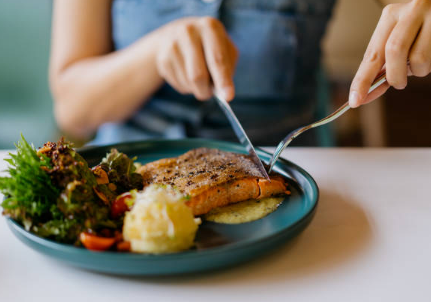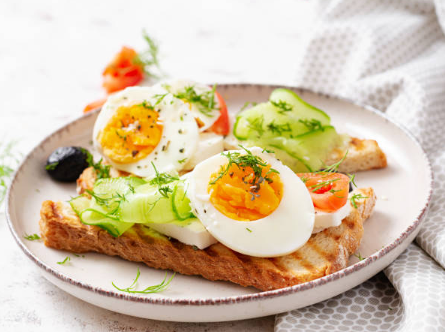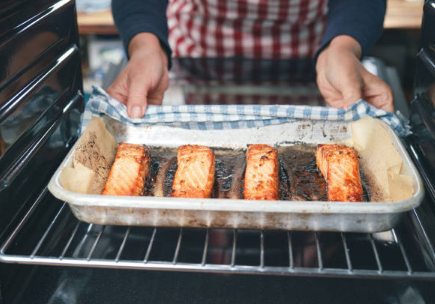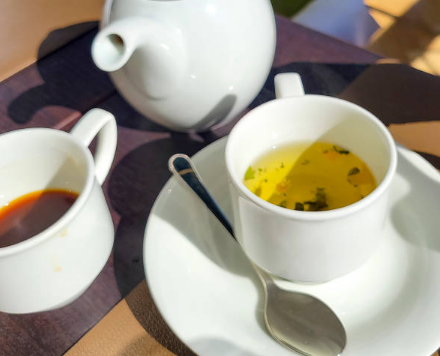Your diet may help relieve stress and anxiety. Foods that can quickly reduce anxiety include avocados, eggs, and oranges. Different antioxidants, minerals, and vitamins can help relieve anxiety symptoms. For example, vitamin C is an antioxidant in oranges that helps reduce stress levels.
You may need to avoid or limit foods and beverages that may exacerbate stress and anxiety, such as foods and beverages that are high in sugar and fat. If you’re having trouble managing symptoms at home, consider talking to a mental health care provider who can provide you with guidance and treatment options.

Anxiety causes intense fear and panic that affects about 19% of Americans each year. Read on to learn how diet affects anxiety and which foods as part of a balanced diet can help reduce anxiety quickly.
1. Avocados
Since avocados contain B vitamins, regular consumption of avocados may help relieve anxiety. Studies have shown that foods rich in B vitamins can reduce symptoms and reduce feelings of anxiety.
One medium-sized avocado contains several B vitamins, including:
- Folic Acid (B9)
- Niacin (B3)
- Pantothenic Acid (B5)
- Riboflavin (B2)
- Vitamin B6
2. Blueberries
Eating blueberries may help relieve stress. Blueberries are rich in antioxidants that help delay and prevent cell damage. A study published in 2019 found that in postmenopausal people, increasing dietary antioxidants reduced anxiety scores.
3. Calcium-Rich Foods
A study published in 2022 found that increasing calcium intake may help improve mood. Calcium-rich foods include dairy products like milk and yogurt, as well as vegetables like spinach and kale.
The researchers, who received data from 1,233 college students, found that those who ate more dairy products and calcium were less stressed than others. They also noted that increasing calcium intake often reduced feelings of anxiety and enhanced resilience.
4. Eggs
Anxiety symptoms depend on hormones within the central nervous system, such as serotonin and dopamine. Egg yolks contain vitamin D, which aids in nervous system function. Some evidence suggests that increasing vitamin D levels can reduce anxiety and depression symptoms and enhance effects.

5. Green Leafy Vegetables
A study published in 2018 found that college students felt calmer, happier, and more energetic when they ate more vegetables. Vegetables include dark leafy greens, carrots, and cucumbers. It’s unclear whether optimistic ideas or healthy eating came first. Still, researchers have found that healthy eating patterns seem to predict positive mood the next day.
6. Nuts and Seeds
Studies have shown that zinc deficiency is associated with anxiety. 1 ounce of raw cashews contains 1.6 mg of zinc, which is about 14 to 20 percent of the recommended adult intake of zinc.
Some evidence suggests that magnesium can also help improve mood and anxiety symptoms. Chia seeds and pumpkin seeds are sources of magnesium.
7. Orange
One medium-sized navy orange provides more than half the recommended dietary allowance (RDA) for vitamin C, an antioxidant. Studies have shown that vitamin C plays a role in the body’s stress response and improved mood.
8. Oysters
Oysters contain more zinc per serving than any other food. 3 mg of zinc per 32 ounces of raw oysters, which is equivalent to 291% of the RDA.
9. Salmon
Stress can increase levels of anxiety hormones, such as adrenaline and cortisol. Salmon contains omega-3 fatty acids that help lower levels of these hormones. For example, omega-3s have been found to reduce cortisol levels by up to 33%.

10. Turkey breast
Turkey is a source of tryptophan, an amino acid that helps produce serotonin. Tryptophan itself may have a sedative effect. A study published in 2015 found that high doses of tryptophan significantly reduced anxiety, depressive symptoms, and irritability.
Drinks to Reduce Anxiety
Just like what you eat can help relieve anxiety, so can the drink of your choice. Some teas, juices, and water are all options to try.
1. Chamomile tea
A cup of chamomile tea can help you relax. Chamomile contains flavonoids, which are antioxidants that may have anxiolytic properties. Studies have found that long-term use of chamomile for several weeks may reduce generalized anxiety disorder (GAD) symptoms.
2. Fruit juice
There are different types of juices available, but 100% fruit juice may be beneficial for anxiety relief. A study published in 2022 explored the effects of consuming 100% fruit juice on anxiety, cognition, and depression. Using data from more than 62,000 adults, researchers found that people who drank juice felt anxious for less time in a month.
3. Green tea
Compared to other types of tea, green tea has the highest concentration of theanine. L-theanine is an amino acid that helps relieve stress, relax, and fight anxiety.

4. Water
Water can reduce anxiety by acting on the brain. Drinking water can help your brain get the nutrients and energy it needs to function properly.
Foods and Drinks That Should Be Avoided
Some foods and drinks may exacerbate your anxiety and its symptoms. To prevent this from happening, limit your spending:
- Artificial sweeteners
- caffeine
- High-fat foods
- High-sugar foods
- Refined carbohydrates
- soda water
Conclusion
Studies have shown that foods such as avocados, oranges, or oysters can reduce feelings of anxiety. If you have a lot of anxiety and stress, drinks like water and 100% fruit juice can also help. These foods and drinks contain antioxidants, minerals, and vitamins that can help relieve anxiety symptoms.
Conversely, foods high in sugar or fat may worsen these symptoms. If you need help managing your anxiety, it’s important to talk to a mental health care provider.